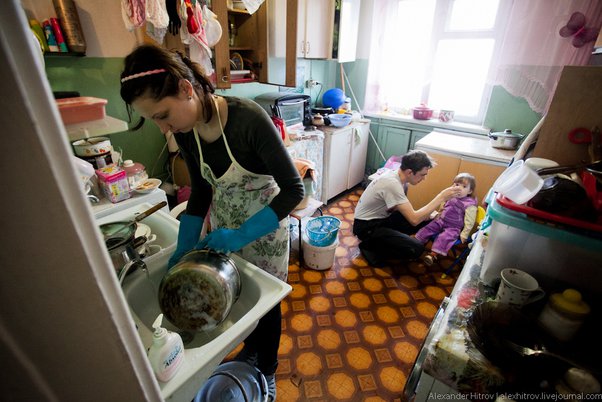The vast majority of Russian women would like to raise at least one child, but two-thirds of them put off motherhood for at least five years. What factors hinder this and do Russian women feel happy? A recent study aims to find answers.
In the first quarter of 2022, VTsIOM and the pharmaceutical company Gedeon Richter conducted the seventh annual study of the Gedeon Richter Women’s Health Index 2022. According to the results of the survey, it became clear that 88% of the respondents would like to raise one or more children, but only 29% of the respondents plan to have a child in the next five years. 7% of women categorically do not want to have children.
A total of 1248 Russian women aged 18 to 45 took part in the survey.
What prevents Russian women from having children in the near future?
financial problems and difficulties with housing (39% of those who do not plan to have children in the foreseeable future);
lack of stability in life (77% of girls in the “under 24” category);
the presence of one, two or more children (37% of the total number of respondents);
health-related restrictions (17% of all respondents);
age (36% of respondents consider their age unsuitable for childbearing).
“The trend of delayed motherhood is observed all over the world, including in Russia,” notes Yulia Koloda, Candidate of Medical Sciences, Associate Professor of the Department of Obstetrics and Gynecology of the Russian Medical Academy of Continuing Professional Education, obstetrician-gynecologist, reproductologist. “But we must remember that fertility worsens with age: at the age of 35, the number and quality of eggs decreases sharply, and at 42, the probability of giving birth to a healthy child is only 2-3%.”
According to Yuri Koloda, it is important to discuss your plans for having children with a gynecologist, because he can offer the best options based on the wishes of a woman. For example,
today’s technology allows you to freeze eggs — and ideally you need to do this before the age of 35
In addition, it is important to correct in time those hormone-dependent diseases that can affect reproductive function (polycystic ovaries, endometriosis, and others).
Respondents associate the birth of a child with:
responsibility for his life and health (65% of all respondents);
happiness and joy from the appearance of the baby (58%);
the emergence of the meaning of life in a child (32%);
a sense of completeness of the family (30%).
Women who do not have children assume that the birth of a child will bring them joy (51%), but at the same time it will limit their interests in favor of the interests of the child (23%), complicate life financially (24%), and negatively affect their health and appearance (thirteen%).
But despite all the negative factors, the majority of Russian women are happy to be mothers.
92% of the mothers surveyed rated their satisfaction with this status on a score from 7 to 10 on a 10-point scale. The maximum rating «absolutely happy» was given by 46% of women with children. By the way, women with children rate their overall level of happiness higher than women without children: the former score 6,75 points out of 10 against 5,67 points for the latter. At least that is the situation in 2022.
Psychologies expert Ilona Agrba previously edepụtara five main reasons why Russian women avoid visiting a gynecologist: shame, fear, distrust, their own illiteracy and the indifference of doctors. In her opinion, this situation has been going on for many years, at least since Soviet times, and changes both in the medical community and in the education of Russian women are taking place slowly.










